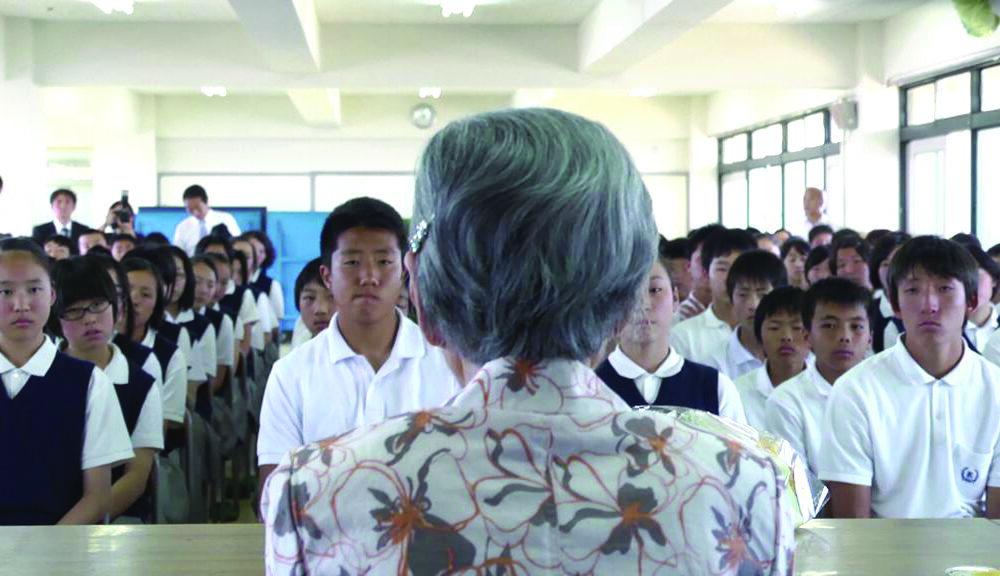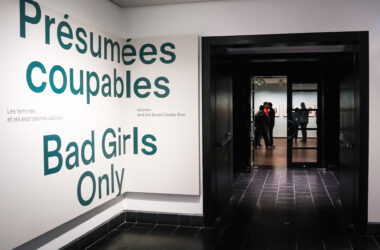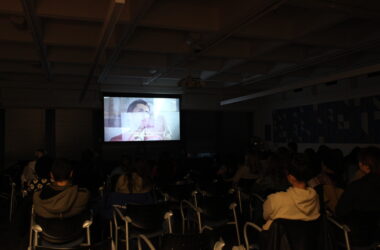The eighth iteration of the Korean Film Festival Canada runs from Sept. 30 to Oct. 30 this year, and features the theme “Narratives Beyond Borders: Women’s Perspectives in the Korean Cinema.” The struggles many women face in determining their identities emerge as a common thread in the festival’s offerings. Bae Chang-ho, director of Whale Hunting, explained how the films navigate both the construction and spontaneous expression of femininity.
“There is naturally given femininity, and femininity given artificially in tradition, family, society, education,” said Bae in an interview with The McGill Tribune. “The latter femininity has tied and repressed women.”
Three of the featured films, The Apology, The Woman Who Ran, and An Uninterrupted View of the Sea, perfectly capture the festival’s essence. At the heart of these films lies the seemingly never-ending struggle to discover oneself.
The Apology, by Tiffany Hsiung, is a compelling and eye-opening documentary that follows the personal stories of three former “comfort women.” The women in the film were among 200,000 others who were forcibly taken and sexually exploited by the Japanese Imperial army during the Second World War. The film is not only a captivating historical piece, but a moving emotional journey. One of the women in the film expressed, “[she wants] to be reborn as a human, as a woman, as someone’s precious daughter, married into a precious family and have [her] own precious family.” By documenting the stories of real women, interlaced with elements of trauma and hope, Hsiung succeeds in creating an intimate and harrowing connection with the viewer.
The Woman Who Ran by Hong Sang-soo is about a woman who has never been apart from her husband since being married. When he leaves for a business trip, she finds herself alone for the first time and takes the opportunity to visit old friends. The film pushes the viewer—even those who are not married, in love, or in any kind of relationship—to self-reflect, and think on how one’s life decisions don’t always turn out the way one wants or hopes. This quality of normalcy is what makes the film so interesting; the quest for independence can be felt universally. Sang-Soo magnificently portrays the ordinary.
An Uninterrupted View of the Sea Short Film 1 by Mika Yatsuhashi chronicles Yatsuhashi’s great-grandfather’s struggle to prove his American identity as a Japanese immigrant. The short film is a conglomeration of old photographs, super 8mm films, and FBI documents. In the span of just 15 minutes, Yatsuhashi introduces, and educates the audience about the emotional hardships specific to immigrant life, as well as the structures which enforce these difficulties. The old photographs transport the viewer into the life of her great-grandfather.
“I chose to use only the archive material because that is how I connected to this story,” Yatsuhashi said in an interview with The McGill Tribune.
In the movie, the photographs and film act as looking glasses; they allow the audience to connect with the person even if through a distant lens. The film displays a very real and important struggle that many people tend to ignore.
“I learned that you should define your own identity and not strive for the acceptance of a government [or] population, because all you’ll do is tire yourself out or worse,” Yatsuhashi said. “[Upon] realizing this, you can form your identity yourself, and not base it upon the values of a government.”
Even though the bulk of films centre culturally specific stories and experiences, the struggle to achieve inner peace, to develop an identity, and to attain a sense of belonging, resonate universally. The Korean Film Festival succeeds in directing a conversation about women’s struggle to define themselves.








